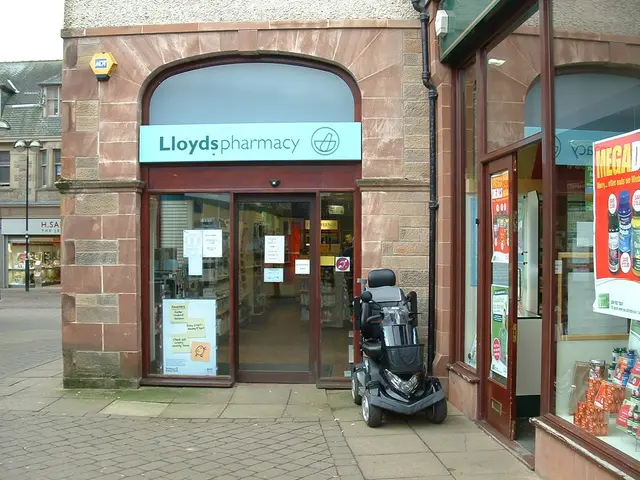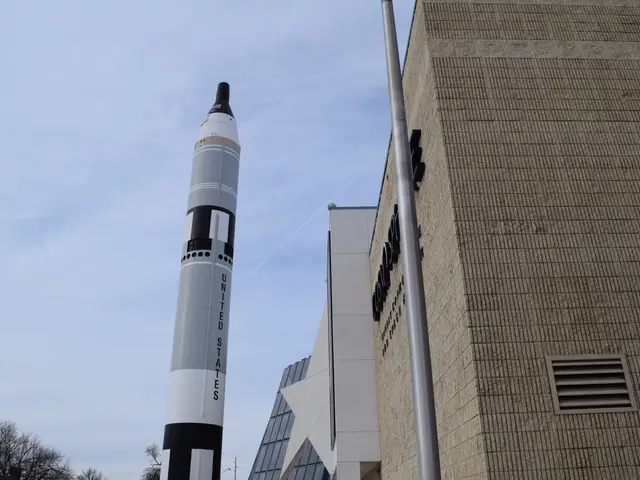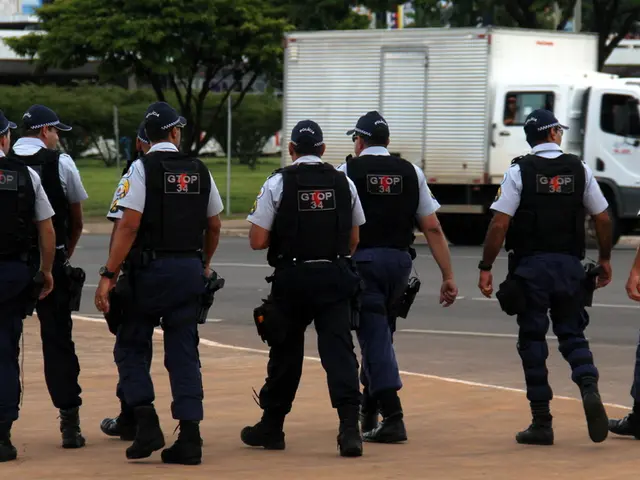Cyclists Plea for Speedy Bike Lane Construction in Rhineland-Palatinate
- *
Exasperating Situation Unfolds: User Faces Multiple Issues - "Disappointed" - Greens Demand Accelerated Action for Cycling Expansion
Commuter bike frustrations escalating: The Greens in Rhineland-Palatinate are urging for a rapid surge in development for commuter bike routes. "It's downright infuriating for local commuters to await lengthy periods for the eagerly-anticipated bike routes to finally be completed," said Lea Heidbreder, the Green faction's mobility spokeswoman. The Green Party wants prompt action on all routes in the region.
The Rhineland-Palatinate branch of the General German Bicycle Club (ADFC) echoes this sentiment. Robert Wöhler, their business manager, advocates for swift implementation of bike routes.
Seven Corridors on the Horizon
Seven potential commuter bike routes have been planned for Rhineland-Palatinate, including a path from Bingen to Mainz, along the Upper Rhine between Worms and Karlsruhe/Wörth, from Konz via Trier to Schweich, from Landau to Neustadt/Weinstraße, from Kaiserslautern to Landstuhl, and from Koblenz north to the state border with North Rhine-Westphalia and south to Boppard.
These seven corridors stem from a 2014 study that evaluated the potential for such routes. These routes are designed to span significant destinations, such as large employment centers, city centers, universities, administrative centers, train stations, and residential areas, especially in densely populated areas, as explained by the State Mobility Authority (LBM).
Still Catching Up on Planning
Despite the planning, the number and length of sections that are currently ridable on these routes remain limited. According to the Ministry of Transport, led by Daniela Schmitt (GFDP), a first section between Bingen and Heidesheim on the route from Bingen to Mainz was completed at the end of last year. Consultations for the remaining stretch to the state capital are currently underway.
Similarly, initial sections have been realized between Konz, Trier, and Schweich, such as a roughly 3-kilometer stretch in the Verbandsgemeinde Schweich and about 1.3 kilometers in Konz. The city of Trier is primarily focused on renovating the Mosel bike path, on which the commuter bike route runs partially.
For the Landau-Neustadt/Weinstraße corridor, the ministry is conducting tests and consultations regarding the shared use of agricultural economic ways and bike traffic. A new bike bridge slated to cross the heavily traveled federal road B10 near Landau is scheduled to be completed by the end of 2024 and will become part of the route.
The financing for feasibility studies largely rests with the state.
In the case of the Landstuhl-Kaiserslautern corridor, work is still underway on a cooperation agreement between the two cities, and the status varies between sections of the route between Worms and Karlsruhe/Wörth. Consultations for a cooperation agreement are ongoing for Worms-Frankenthal-Ludwigshafen, and a design plan is to be created for Ludwigshafen-Schifferstadt this year. There's a short, 300-meter-long inner-city section in Schifferstadt-Speyer-Wörth for which planning or consultations are ongoing between municipal carriers.
A feasibility study for the route from Koblenz south to Boppard has been completed and was handed over to project partners at the end of May. A study for the route from Koblenz north to the state border is still pending, focusing on assessing possibilities on both sides of the Rhine.
The Ministry of Transport stated that the implementation of the seven route corridors is a top priority for the state government, offering support to municipalities through the State Mobility Authority (LBM) and covering 80% of the costs for feasibility studies for the routes. Moreover, municipalities can receive subsidies of up to 90% for certain construction costs.
- Traffic
- Rhineland-Palatinate
- Mainz
- Bingen
- Trier
- Koblenz
- Booster
- Bicycle
- Commuter
- Greens
- Worms
- Karlsruhe
- Wörth
- Landau
- Boppard
- Corridor
- Ministry of Transport
Additional Insights
The seven corridors are designed to link significant destinations such as employment hubs, city centers, and residential areas, onto which the green faction is focusing their calls for swift development. The implementation process for the routes faces various obstacles, and their completion remains a challenge, causing frustration among cyclists and advocates. The Green Party in Rhineland-Palatinate emphasizes the need for faster, uncompromising action on all routes in the region to meet the demands of cyclists and commuters.
- The European Parliament, the Council, and the Commission, alongside the finance, transportation, and sports industries, should prioritize funding and regulation to expedite the development and implementation of bike infrastructure in Rhineland-Palatinate.
- The swift completion of the seven planned commuter bike routes in Rhineland-Palatinate, linking employment hubs, city centers, and residential areas, is crucial for alleviating the escalating frustrations of local cyclists and commuters, as urged by the Green Party and the ADFC.








